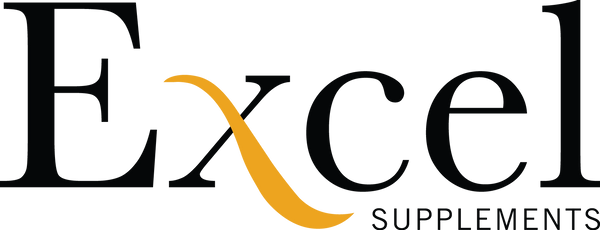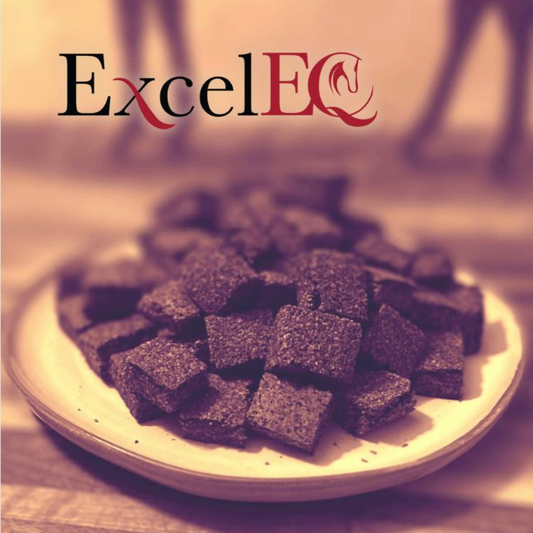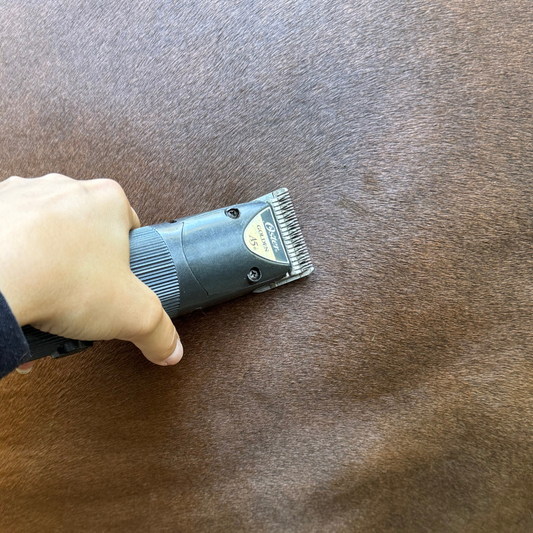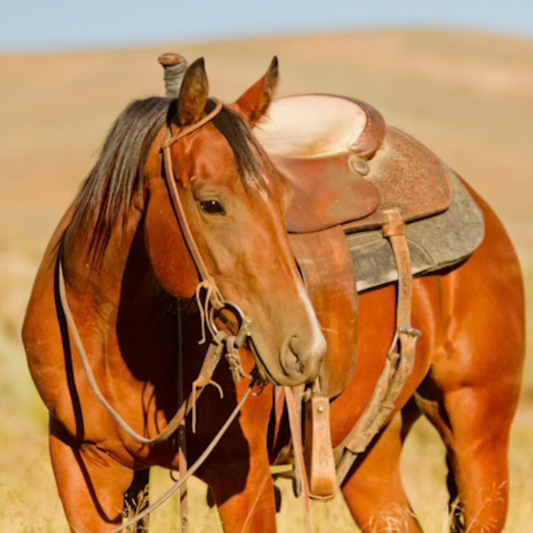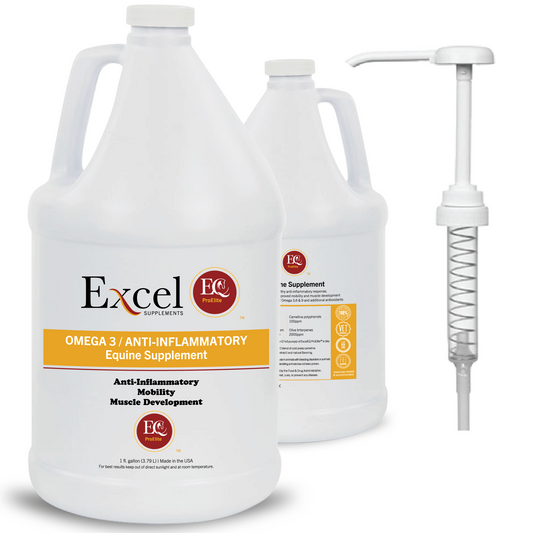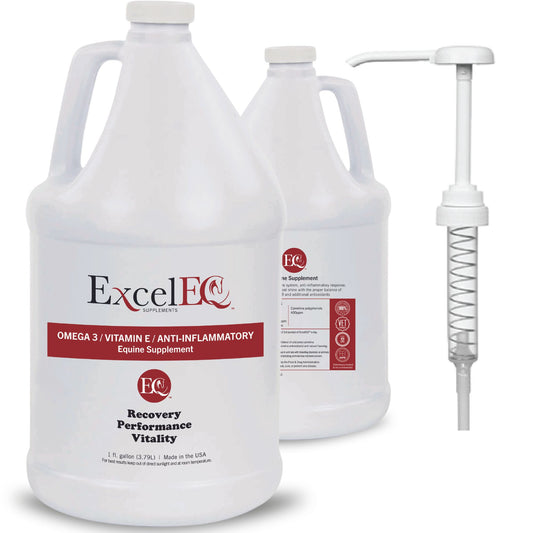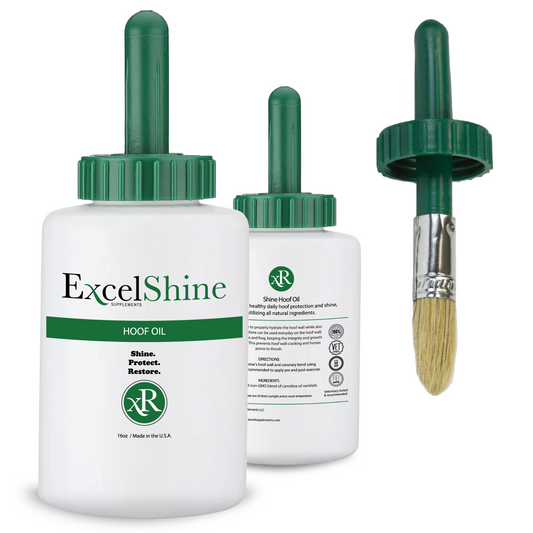The Importance of Quality Grain for Horses
Share
Whether you use your horse for showing, performance, farm work, breeding, or as a beloved pet, proper nutrition is crucial for their health and well-being. Many horse owners are knowledgeable about basic equine nutrition, often guided by equine professionals throughout their careers.
In fact, some equine enthusiasts are so passionate about their horses' nutrition that they pursue advanced degrees and careers in this field. It’s safe to say that many horse owners are deeply invested in their equine partners' nutrition.
Why Does Quality Grain For Horses Matter?
- Nutritional Balance: Horses, like humans, need a balanced diet to maintain health and performance. Quality grains ensure they receive essential nutrients like proteins, carbohydrates, fats, vitamins, and minerals in the right proportions.
- Digestive Health: Poor-quality grains can be harder to digest or may contain contaminants that can lead to digestive issues like colic or ulcers. High-quality grains are typically easier on the horse's digestive system.
- Energy Levels: The right grains provide horses with the energy they need for various activities, whether it's competing, working, or simply maintaining their daily routines.
- Coat and Hoof Health: Nutrient-rich grains contribute to overall coat shine and hoof strength, which are indicators of a horse's health and well-being.
- Weight and Muscle Maintenance: Depending on the horse's needs, quality grains can help in maintaining an optimal weight and supporting muscle development, especially for performance horses.
- Long-Term Health: A diet based on high-quality grains supports the horse's long-term health and can contribute to a longer, active life.
Understanding the nutritional content and sourcing of grains helps ensure that horses receive the best possible diet tailored to their specific needs and activities.
Should My Horse Eat Forage or Grain?
Forage-Only Diet vs. Grain Ration
While many horses thrive on a forage-only diet, others, particularly performance horses with higher workloads or older horses with increased nutritional needs, may require additional nutrients. When a horse's diet needs to be supplemented, grain rations are often the first choice. However, understanding the specific nutritional needs of your horse can be challenging. Are you relying on the general feed your barn uses, or are you choosing products based on brand names? Many owners seek advice from feed representatives or veterinarians, but how many can accurately interpret a feed tag analysis?
Assessing Your Horse's Nutritional Needs
Horse nutrition varies based on factors like metabolic conditions, location, forage sources, and workload. Below is a guide to the daily energy and protein needs for different types of horses and workloads:
- Performance Horses
- Older Horses
- Breeding Horses
- Recreational Horses

Evaluating Grain Quality
Understanding Sources When Picking Quality Grain for Horses
Once you comprehend your horse's energy and protein requirements, it’s essential to choose the right grain sources to meet these needs. The quality of the grain you select can significantly impact your horse's health. Refer to the following chart for average feed type ingredients and their corresponding energy and protein percentages:
- Grain Ingredients
- Energy Content
- Protein Levels
The Role of Forage Analysis
Analyzing your horse's forage is highly recommended to identify any nutritional deficiencies that need to be addressed with grain rations. A well-rounded feed should meet all nutritional needs without additional supplementation.
What is the Best Diet for My Horse?
Tailoring Diets to Specific Needs
A horse with a metabolic condition like Cushing's disease will require a diet low in sugar, which generally means avoiding grains with molasses or alfalfa forages. On the other hand, a high-performance or show horse will benefit from a diet high in protein, especially if the forage provided is low in protein.
The Importance of Omega Fatty Acids
Omega-6 Fatty Acids
Omega fatty acids are essential nutrients not always adequately provided by forage and grain rations. Horses do not produce omega fatty acids on their own, so they must be included in their diet. However, most grains contain omega-6 fatty acids, which are pro-inflammatory.
Omega-3 Fatty Acids
Omega-3 fatty acids, found primarily in grasses, promote an anti-inflammatory response. Choosing the right omega oil is crucial; oils like corn, vegetable, coconut, and sunflower oil often have a higher ratio of omega-6 to omega-3. Excel Supplements' Camelina oil offers a balanced 2:1 ratio of omega-3 to omega-6, providing an optimal blend of essential fatty acids for your horse.

Why Excel Supplements?
Aside from the above mention of Excel's balanced omega ratio within their Camelina Oil it is also a sugar free option for added nutrition within your horses diet. ExcelEQ and ExcelEQ ProElite offer all the benefits of an omega supplement while remaining sugar free. Additionally, we pride ourselves on the quality of our seeds, the process of our cold pressing and the checks we run to make sure that only the best of our product is making it into your hands.

Quality Grain for Horses
In conclusion, high-quality grain for horses is essential for their overall well-being, performance, and longevity. A carefully balanced grain diet ensures proper nutrition, supports digestive health, and enhances energy levels, coat condition, and hoof strength. By investing in top-tier grains and supplements like ExcelEQ ProElite, you can promote long-term health and maintain your horse’s optimal weight and muscle mass. Ultimately, the right grain and nutritional support are key to helping your horse thrive, whether they are working, competing, or enjoying a peaceful retirement.
For updated information on equine care, trending topics and discount opportunities follow us on social!
Follow us on Instagram: @excelsupplements
Keep up to date with us on Facebook: Excel Supplements
Resources
By understanding and addressing the nutritional needs of your horse, including the quality of their grain and the balance of omega fatty acids, you can help ensure they lead a healthy and vibrant life.
